Cannabidiol, commonly known as CBD, has taken the health and wellness world by storm. You might have seen it advertised in oils, gummies, creams, and even pet products.
But what exactly is CBD, and why is everyone talking about it?
Let’s explore the intriguing world of CBD, uncover its numerous potential benefits, and address any side effects you should consider.
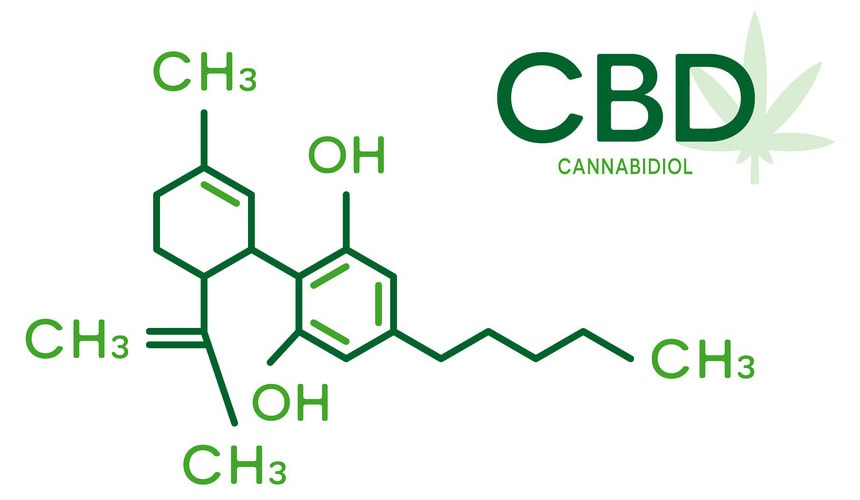
CBD is one of over 100 natural compounds called cannabinoids found in the Cannabis sativa plant. Unlike THC (tetrahydrocannabinol), the well-known psychoactive component of cannabis, CBD doesn’t get you high. This means you can enjoy some of the potential therapeutic benefits of cannabis without the mind-altering effects.
Our bodies have something called the endocannabinoid system (ECS), which helps regulate functions like mood, sleep, appetite, and pain. The ECS has receptors in the body, and CBD interacts with them to help maintain balance or homeostasis. By influencing the ECS, CBD may help with various health issues.
Many people turn to CBD for pain relief. Research suggests that CBD may help reduce chronic pain by affecting endocannabinoid receptor activity and reducing inflammation. A study featured in the European Journal of Pain revealed that topical application of CBD may effectively reduce pain and inflammation associated with arthritis.
If you suffer from migraines, CBD might offer some relief. While more research is needed, some studies indicate that CBD, in combination with THC, may help reduce migraine symptoms.
Living with anxiety or depression can be incredibly challenging. CBD has shown promise as a natural treatment option. A study in The Permanente Journal found that participants who took CBD experienced reduced anxiety and improved sleep within a month.
Cancer treatments often come with unpleasant side effects like nausea, vomiting, and pain. Some studies have found that CBD may help alleviate these symptoms. For instance, a study in the British Medical Journal noted that CBD combined with THC provided effective pain relief in cancer patients.
CBD’s interaction with the ECS and other brain signaling systems may benefit those with neurological disorders.
The FDA has approved a CBD-based medication called Epidiolex for treating certain types of epilepsy. Additionally, some studies suggest that CBD oil may reduce muscle spasticity in people with multiple sclerosis.
CBD might be good for your heart, too. Research indicates that it may help lower high blood pressure, which is linked to higher risks of various heart conditions.
A small study in JCI Insight showed that participants experienced a reduction in blood pressure after taking a single dose of CBD.
Got skin issues? CBD might help. Thanks to its anti-inflammatory properties, CBD oil is becoming a popular ingredient in skincare products.
A study in the Journal of Clinical Investigation found that CBD oil may prevent sebaceous gland cells from producing too much sebum, which is a major cause of acne.
While many people tolerate CBD well, it’s important to be aware of possible side effects.
There have been studies indicating that very high doses of CBD might cause liver damage. However, these doses are significantly higher than what’s typically recommended. It’s still a good idea to consult your doctor, especially if you’re taking other medications.
Currently, there’s limited research on how CBD affects fertility and reproductive health. Some animal studies suggest potential risks, but we need more human studies to draw definitive conclusions.

In the United States, hemp-derived CBD products containing less than 0.3% THC are federally legal. State laws differ, so it’s important to check local regulations before buying or using CBD products.
With so many CBD products out there, how do you pick the right one?
CBD comes in various forms, so you can choose what fits best into your lifestyle.
There’s no universal CBD dosage, but you can check our dosing recommendations here. Factors like your body weight, the condition you’re treating, and individual body chemistry all play a role.
No, CBD is non-psychoactive and does not produce the “high” associated with THC.
Current research indicates that CBD is not addictive and may even help treat addiction.
It depends on the method of consumption. Vaping or sublingual oils can take effect within minutes, while edibles might take an hour or more.
Laws vary by country and even by state. It’s essential to check local regulations before traveling with CBD products.
CBD can interact with certain medications, especially those that come with a “grapefruit warning.” Always consult your doctor before combining CBD with other prescriptions.
Start with a low dose and gradually increase it while watching how your body reacts, as there’s no universal dosage. You can also follow our recommendations here.
Long-term effects are still being studied. So far, CBD appears to be safe for most people, but ongoing research will provide more insights.
Both are varieties of the Cannabis sativa plant. Hemp contains low levels of THC (less than 0.3%), while marijuana has higher THC levels.
Yes, there are CBD products formulated specifically for pets. However, always consult your veterinarian before giving your pet CBD.
Most drug tests look for THC, not CBD. However, full-spectrum CBD products contain trace amounts of THC, which could potentially show up on a drug test.
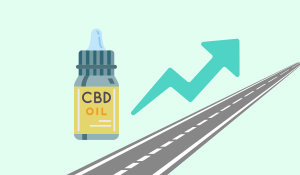
Therapeutic Uses of CBD Managing Chronic Pain with CBD Struggling with chronic pain? CBD might help. Studies suggest it can reduce inflammation and alleviate discomfort,...
Read More
Cannabis has been used for millennia to treat numerous health conditions. Current research offers promising results on the effects of CBD oil on breast cancer.
Read More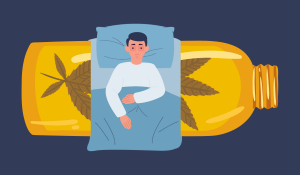
If you've ever wondered about using CBD for insomnia, you should know how CBD helps anxiety, stabilizes your sleep-wake cycle, and makes falling asleep easier.
Read More
CBD-infused salad dressing: Imagine a fresh, crisp salad enhanced with a light, herbaceous vinaigrette containing your daily dose of CBD. To create this, you’ll need...
Read More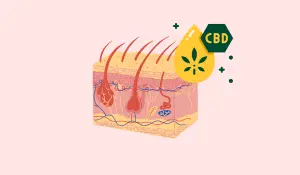
1. What Is CBD and Why Is It a Game-Changer for Skin Health? CBD (cannabidiol) is a natural compound extracted from the hemp plant. Unlike...
Read More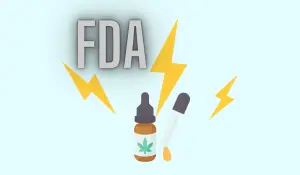
The Legal Landscape of CBD The 2018 Farm Bill and Its Impact The signing of the Agriculture Improvement Act of 2018, commonly known as the...
Read More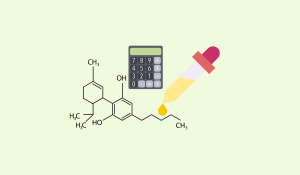
What Is the Proper Dosage of CBD Oil? Knowing the right CBD oil dosage is essential before starting your regimen. While personal factors and specific...
Read More
Watch Now CBD Dosage for Dogs: Starting Small When introducing CBD oil to your dog’s regimen, it’s crucial to start with a small dose and...
Read More
Breakthrough #1: CBD’s Role in Chronic Pain Relief Chronic pain robs people of precious moments. A 2021 study in the Journal of Pain Research highlights...
Read More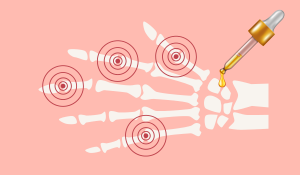
Understanding Arthritis Pain Arthritis is a chronic condition that affects daily activities, from opening jars to taking walks. Here’s a look at the two most...
Read More